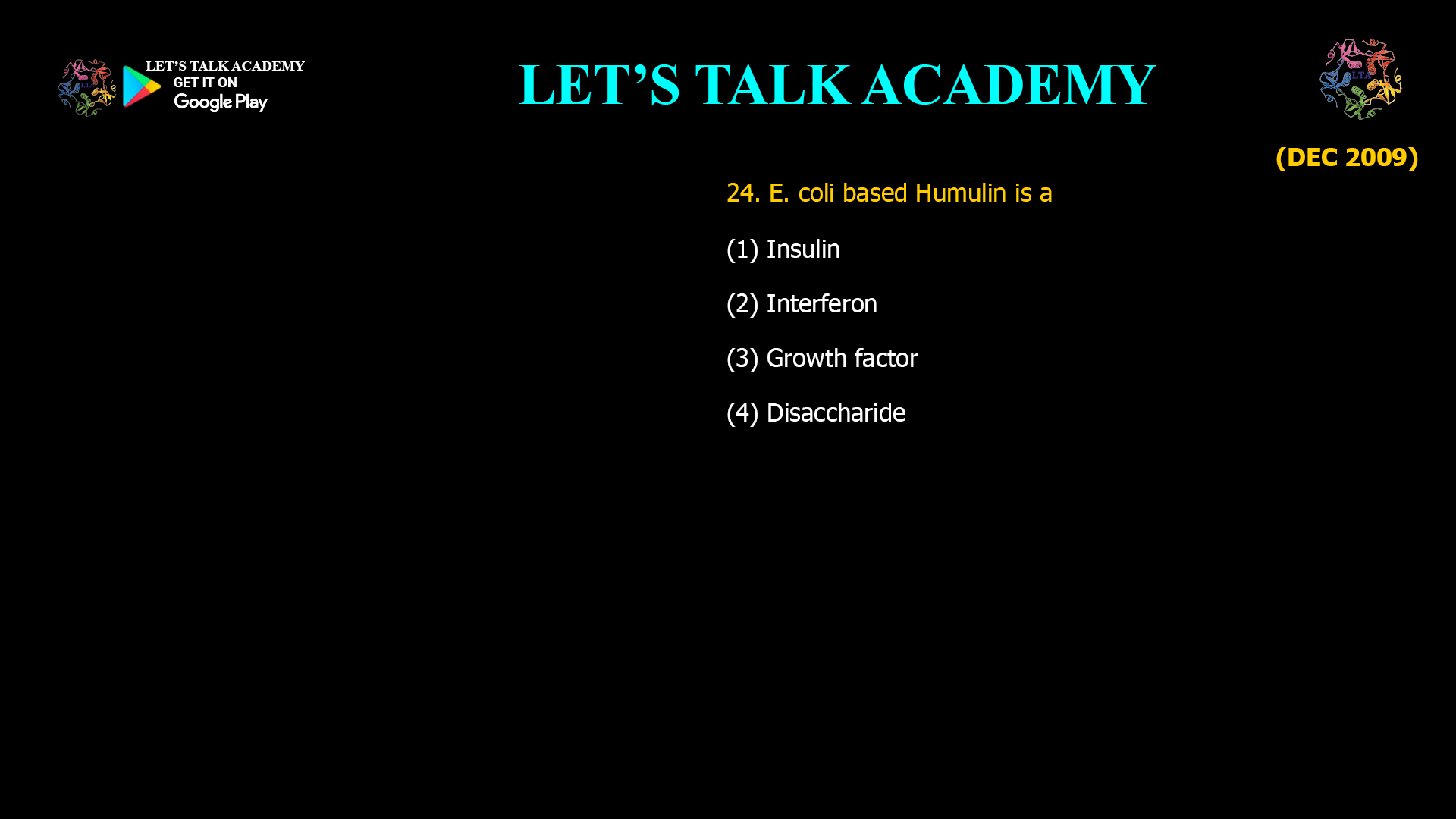- E. coli based Humulin is a
(1) Insulin (2) Interferon
(3) Growth factor (4) Disaccharide
Humulin: The first recombinant insulin
Humulin is the trade name for biosynthetic human insulin produced using recombinant DNA technology in E. coli. The genes for insulin’s A and B peptide chains are synthesized and inserted into E. coli, which then produces the insulin chains that are purified and combined to form functional human insulin for diabetes treatment. This method replaced animal-derived insulin and enabled large-scale, allergen-free human insulin production.
Explaining all options
| Option | Explanation |
|---|---|
| (1) Insulin | Correct. Humulin is biosynthetic ‘human’ insulin made using E. coli fermentation by recombinant gene insertion, used for diabetes therapy. |
| (2) Interferon | Incorrect. Interferons are a different class of immune signaling proteins sometimes made in E. coli, but “Humulin” refers only to insulin. |
| (3) Growth factor | Incorrect. Growth factors are cellular signaling proteins, not insulin and not branded as Humulin. |
| (4) Disaccharide | Incorrect. Disaccharides are simple sugars (e.g., sucrose, lactose), not proteins, and entirely unrelated to Humulin. |
SEO-optimized introduction
E. coli-based Humulin is recombinant human insulin, offered as a safe, effective alternative to animal insulin for diabetes patients, and was the first medicine produced using modern genetic engineering. Humulin is not an interferon, a growth factor, or a disaccharide; it is specifically engineered to meet the needs of those requiring replacement insulin.



